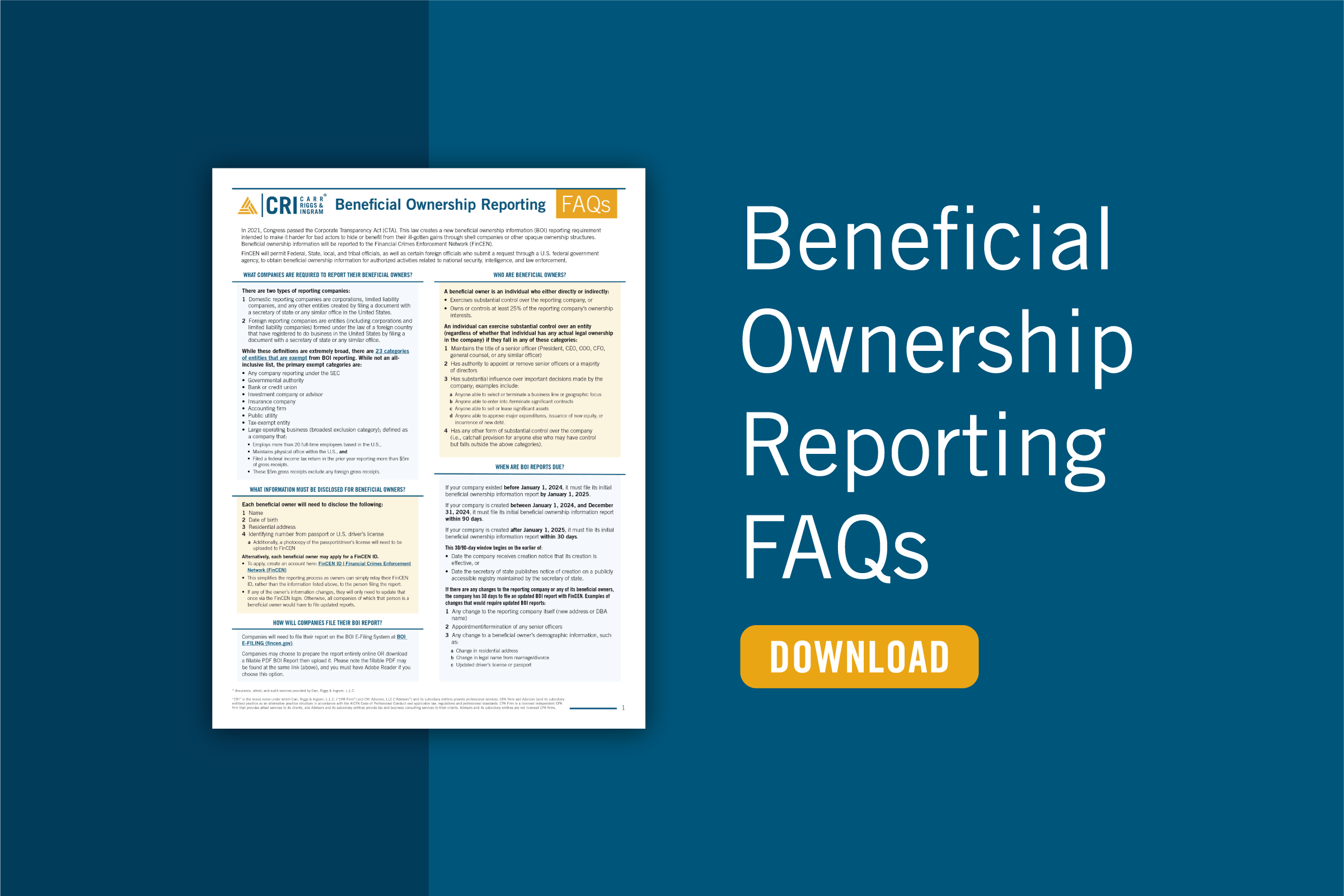Why Strong Internal Controls Are Necessary for a Healthy Business
Mar 30, 2016
Strong internal controls can keep a company healthy by helping to achieve four key business objectives:
Safeguarding assets: The right controls protect a business' physical and financial assets from fraud, theft, and errors. Likewise, proper controls quickly identify errors and fraud if they occur. One essential concept related to internal controls (specifically safeguarding assets) is the segregation of duties (i.e., separating incompatible functions) because it prevents a single individual from requesting, authorizing, verifying, and/or recording business expenditures.
Ensuring reliable financial reporting: Owners and managers require accurate financial information to make informed decisions. Because solid internal controls help maintain financial data validity, they also equip management to make more educated judgment calls.
Maintaining compliance: Credible financial data enables organizations to fulfill their duties to file complete and accurate tax returns, as well as meet any financial reporting obligations (e.g., to fulfill loan covenants). Appropriate processes and procedures also allow organizations to meet other regulatory and statutory filing or reporting requirements.
Accomplishing operational efficiency: Organizations typically operate more effectively with processes and procedures in place. A strong internal control environment can foster efficiency through automation of manual controls, removing unnecessary or duplicative steps in a process, or combining certain functions in a cost-effective manner. Finally, when financial data is consistent and easily accessible, management receives timely and relevant information to verify that activities align with business objectives.
Conducting an Internal Control Check-Up
Prescribing the right internal controls is not necessarily complex, but it does require careful examination of the business’ organizational structure. Business owners and executives should identify not only what checks and balances they need to implement, but also who is responsible for ensuring that they work.
Controls over financial processes generally fulfill at least one of these criteria:
1. Completeness: All records and transactions are included.
2. Accuracy: The correct amounts and other relevant data are recorded.
3. Validity: The transactions captured or recorded were real and appropriate.
4. Authorization: The proper authorization levels are in place to cover such things as approvals, payments, data entry, and computer access.
5. Timeliness: Financial reports are available in a timely manner for decision usefulness.
Take Control of Your Business Health
In the end, strong internal controls increase the likelihood of achieving and maintaining business health. Take charge of your organization’s health by implementing the appropriate internal controls. Does your organization need help establishing — or refining — effective internal controls? If so, then contact CRI. Our experienced professionals have the insights to help you improve the health of your company.






































































































































































































































































































































































































































































